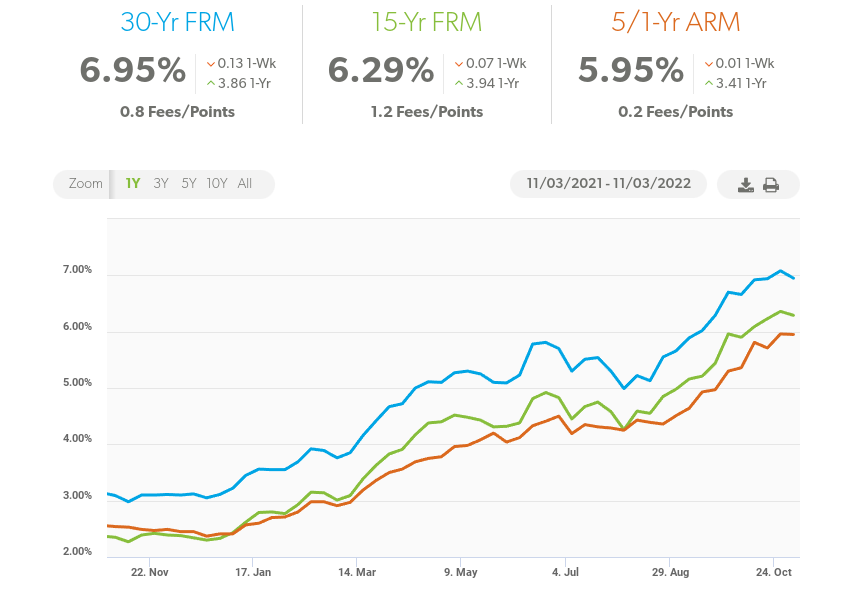- The changing economic dynamics have hurt Home Depot badly this year
- Its stock has shed 32% this year compared with a 20% drop for the S&P 500.
- Despite this underperformance, Home Depot is a solid dividend-paying stock that could rebound strongly, helped by its powerful business mix
The environment has been quite hostile to home-improvement companies this year as the catalysts that boosted their share prices to record highs during the pandemic have one by one, turned sour.
Homeowners, who were spending lavishly on their home renovation projects, have diverted their spending to other activities they missed during the global health crisis, like travel and outdoor entertainment.
The ultra-low interest rates and excess liquidity, which propelled home prices and created a once-in-a-generation boom in the housing market, are no longer there to make homeowners confident of keeping spending on their homes.
The U.S. Federal Reserve’s aggressive rate hikes this year have eroded affordability for home buyers, slowing residential sales and building activity.
Mortgage rates topped 7% for the first time in 20 years last week before subsiding back to just below that level. A year ago, they were just over 3%. While home prices are still high, economists warn that it’s just a matter of time before they begin to decline.

Source: Freddie Mac
These changing economic dynamics have badly hurt the industry leader, Home Depot (NYSE:HD). Its stock has dropped 32% this year compared with a 20% drop for the S&P 500. This sharp correction raises the question of whether the world’s biggest home improvement retailer is a buy on these levels or if there is a further downside risk.
Let’s first look at the Atlanta-based retailer’s earnings performance this year to analyze how the current adverse conditions impact its business.
Earnings Beat
Revenue and earnings also beat expectations. In August, HD reported comparable sales growth of 5.8% in the three months that ended July 31, topping the average analyst estimate of 4.6%. Despite this beat, comparable sales have declined considerably from the double-digit gains witnessed during the pandemic.
While admitting the impact of headwinds hurting the housing industry, Home Depot said project backlogs remain healthy, and strong sales trends have continued into the current quarter.
At that time, the retailer also reiterated its guidance for the rest of its fiscal year, including comparable sales growth of about 3%. The company told analysts on a conference call that it’s taking a conservative approach to the forecast due to economic uncertainty.

Source: InvestingPro
Although HD stock will likely remain under pressure as long as the economic horizon remains cloudy, a few distinctive features make its stock more resilient than other retailers in this category.
The biggest strength is the company’s focus on professional contractors. While you and I may not spend on our home renovation projects when costs have spiked, professional builders have a long pipeline of projects which they have to deliver.
Home Depot has historically drawn more business from these more lucrative and frequent shoppers. About 45% of Home Depot’s total sales come from pro customers compared to about 20% to 25% at Lowe’s Companies (NYSE:LOW).
Pro Customer Base
For years, Home Depot has positioned itself as a convenient alternative to ordering from specialty suppliers for pros. It has doubled down on that with a $1.2 billion supply chain investment, which includes opening a network of flatbed distribution centers in various population hubs in the U.S., including Dallas, Baltimore, Miami, and Newark.
HD’s early advantage to grab more share in the pro market means the company is less vulnerable to Amazon's (NASDAQ:AMZN) e-commerce onslaught. Building materials and other large items make less sense for e-commerce.
The second factor—which I see will continue to help sales even when the housing market is taking a hit—is the permanent shift in the work culture when more and more workers are allowed to work from home, creating more long-term demand for renovations and more reasons to shop at Home Depot.
And finally, HD stock is much more reasonably priced than it was a year ago. The stock is trading at 16 times its forward earnings multiple. Over the past five years, it traded over 25 times its earnings.
In a recent note, Citi reiterated Home Depot as a buy, saying the long-term opportunity is too attractive to ignore for shares of the home improvement retailer. Its note adds:
“Regardless of the macro backdrop, we still believe HD has the right strategy to win the long-term opportunity.”
Bottom Line
The major upward move in HD stock is over in the current cycle as spending patterns normalize in the post-pandemic environment. Still, Home Depot is a solid dividend-paying stock that will rebound strongly, helped by its solid business mix.
Disclosure: At the time of writing, the author is long on Home Depot. The views expressed in this article are solely the author’s opinion and should not be taken as investment advice.
